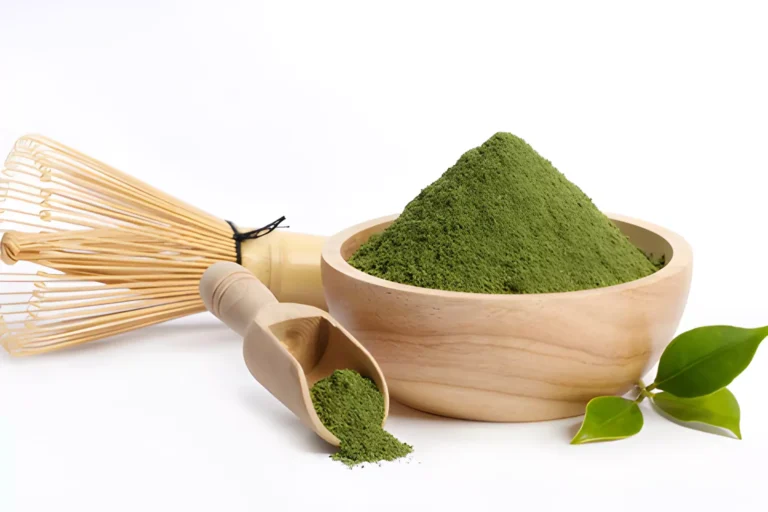Comparison Between Flax Seeds vs Sesame Seeds
When it comes to using healthy seeds in your diet, flax seeds and sesame seeds are two popular choices. Both of these seeds are healthy and nutritious and contain many of the same nutrients such as dietary fiber, protein, and healthy fats.
But, there are a few distinct differences between the two. And in this article we will going to compare the flax seeds vs sesame seeds in terms of nutritional value and health benefits. But before moving ahead lets have a quick overview of these two seeds.
What are Flax Seeds
Flax seeds are small, brown or golden seeds that are native to the Middle East. They are a good source of protein, fiber, omega-3 fatty acids, and lignans. Lignans are plant compounds that have been shown to have many health benefits, including reducing the risk of heart disease, cancer, and menopause symptoms.
What are Sesame Seeds
Sesame seeds are small, black or white seeds that are native to Africa and Asia. They are a good source of protein, fiber, calcium, iron, and magnesium. Sesame seeds are also a good source of sesamin and sesamol, two compounds that have been shown to have anti-inflammatory and antioxidant properties.
Comparison of Flax Seeds and Sesame Seeds: Nutrition Value
As compared to the sesame seed, flax seeds are high in omega-3 fatty acids, while sesame seeds are high in calcium. Flax seeds have a nutty flavor, while sesame seeds have a more earthy flavor. When it comes to comparing flax seeds vs sesame seeds for weight loss, flax seeds are slightly lower in calories, with 150 calories per serving, compared to 160 calories per serving of sesame seeds.
Apart from these, flax seeds are also high in lignans which have been shown to reduce the risk of breast cancer. While, sesame seeds have been shown to reduce inflammation and oxidative stress. Incorporating flax seeds and sesame seeds into your diet is easy. You can add them to smoothies, oatmeal, yogurt, or salads. You can also use them as a topping for bread or crackers.
The following table compares the nutritional content of flax seeds vs sesame seeds:
| Nutrient | Flax Seeds (1 ounce) | Sesame Seeds (1 ounce) |
|---|---|---|
| Calories | 150 | 160 |
| Fat | 4.3 grams | 13.6 grams |
| Cholesterol | 0 milligrams | 0 milligrams |
| Sodium | 30 milligrams | 11 milligrams |
| Carbohydrates | 8 grams | 12 grams |
| Fiber | 8 grams | 4 grams |
| Sugar | 1 gram | 0 grams |
| Protein | 5 grams | 4 grams |
| Calcium | 255 milligrams | 975 milligrams |
| Iron | 5.7 milligrams | 14.6 milligrams |
| Magnesium | 392 milligrams | 351 milligrams |
| Potassium | 813 milligrams | 468 milligrams |
As you can see, flax seeds and sesame seeds are both very nutritious seeds. However, flax seeds are a better source of omega-3 fatty acids, lignans, and fiber, while sesame seeds are a better source of calcium, iron, and magnesium.
Health Benefits of Flax Seeds and Sesame Seeds
Both flax seeds and sesame seeds offer a variety of health benefits. Some of the health benefits of these seeds include:
- Reduce the risk of heart disease. The omega-3 fatty acids in flax seeds and sesame seeds can help to reduce the risk of heart disease by lowering blood pressure, cholesterol levels, and inflammation.
- Reduce the risk of cancer. The lignans in flax seeds have been shown to have anti-cancer properties. Sesame seeds also contain sesamin and sesamol, two compounds that have been shown to inhibit the growth of cancer cells.
- Reduce the risk of diabetes. The fiber in flax seeds and sesame seeds can help to regulate blood sugar levels.
- Improve digestion. The fiber in flax seeds and sesame seeds can help to improve digestion by adding bulk to stool and making it easier to pass.
- Promote weight loss. The fiber in flax seeds and sesame seeds can help to promote weight loss by making you feel full and preventing you from overeating.
- Improve skin health. The omega-3 fatty acids in flax seeds and sesame seeds can help to improve skin health by reducing inflammation and dryness.
- Improve hair health. The omega-3 fatty acids in flax seeds and sesame seeds can help to improve hair health by making hair stronger and shinier.
Flax seeds and sesame seeds are easy to add to your diet. You can add them to oatmeal, yogurt, smoothies, salads, or breads. You can also grind them into a powder and use them as a flour substitute.
Can I substitute flax seeds for sesame seeds?
Yes, you can substitute flax seeds for sesame seeds in most recipes. Flax seeds and sesame seeds are both small, nutty-flavored seeds that add texture and flavor to food. However, there are some key differences between the two seeds that you should keep in mind when making substitutions.
In general, you can substitute flax seeds for sesame seeds in a 1:1 ratio. But, it is always best to start with a small amount of flax seeds and add more to taste. Here are some examples of how you can substitute flax seeds for sesame seeds:
- In baked goods: Flax seeds can be used in place of sesame seeds in breads, muffins, and other baked goods. But, you may need to add more moisture to the recipe, as flax seeds can absorb more water than sesame seeds.
- In salads: Flax seeds can be added to salads for a boost of fiber and omega-3 fatty acids.
- In smoothies: Flax seeds can be added to smoothies for a nutrient-rich boost.
- In yogurt: Flax seeds can be sprinkled on yogurt for a crunchy and flavorful topping.
Flax seeds are a versatile and nutritious seed that can be used in a variety of recipes. If you are looking for a healthy and delicious way to add more fiber and omega-3 fatty acids to your diet, consider substituting flax seeds for sesame seeds in your favorite recipes.
Conclusion
Both the flax seeds and sesame seeds are high in nutrition and offer a range of health benefits. Flax seeds are rich in omega-3 fatty acids and fiber, while sesame seeds are a great source of calcium and iron. By incorporating these seeds into your diet, you can enhance your nutritional intake. Whether you choose flax seeds or sesame seeds, they are both valuable additions to a healthy eating plan.
Remember to experiment with different ways to incorporate these seeds into your meals. Sprinkle them on salads, yogurt, or smoothies, or use them in baking and cooking. The versatility of flax seeds and sesame seeds allows you to enjoy their health benefits in a variety of delicious ways. So, go ahead and start adding these nutrient-rich seeds to your diet for a boost in both flavor and nutrition.




